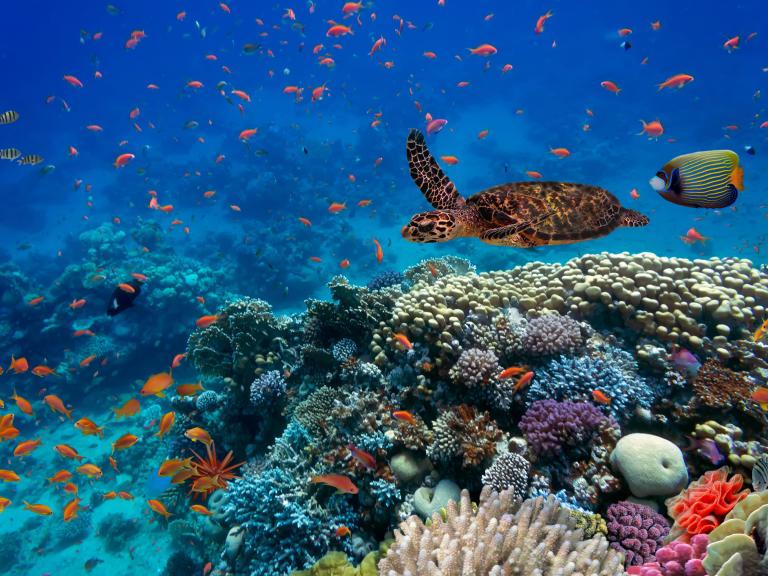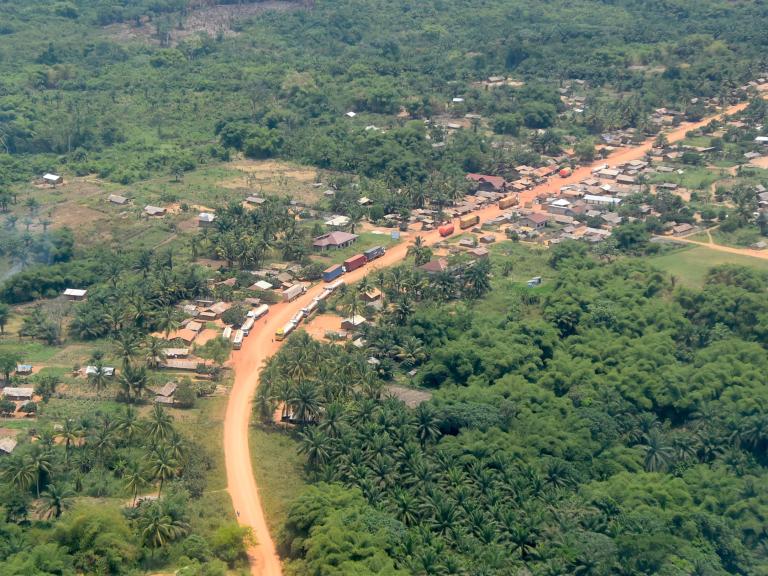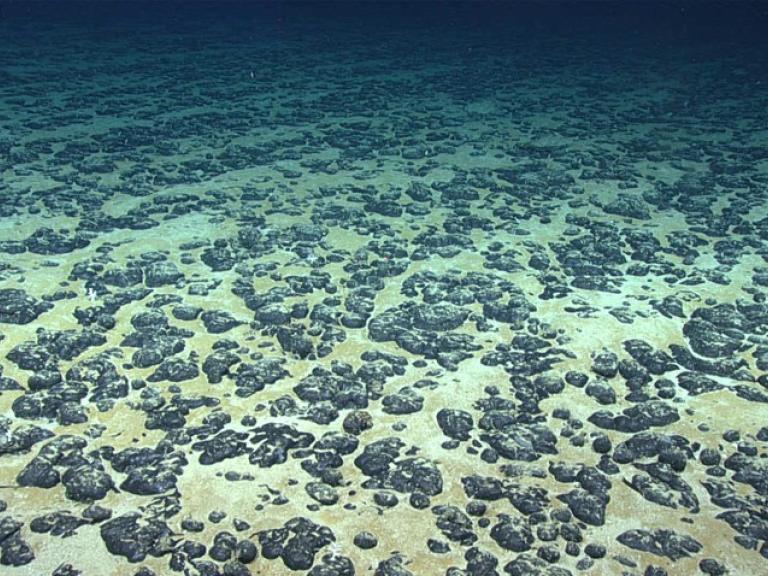-
Last updated on

In remote areas in Mozambique, solar panels power plants to pump and desalinate water, an Enabel project (© Enabel).
A water conference organised by the Belgian Development Cooperation should provide the impetus to make water a central theme. Without water, there can be no life!
Without water, there can be no life. We realise this most of all whenever shortages occur. Right now – on 4 May 2023 – southern Europe is groaning under extreme drought and heat. Even Belgium has experienced several dry summers in a row. Except in 2021, when a number of municipalities in Wallonia experienced floods.
A global common good
In the Global South, the situation is often even more dramatic. Last year, Pakistan was scorched by extreme heat and drought for months until extremely violent monsoons flooded one third of the country. Since October 2020, the horn of Africa – parts of Kenya, Somalia and Ethiopia – has been suffering the worst drought for 40 years.
As many as 2 billion people still have no safe water to drink, while 3.6 billion people are having to get by without proper sanitation (toilets, washing facilities) (2020 figures).
The situation is critical and the United Nations (UN) realises this as well. A major UN conference on water took place in New York in March 2023. After all, the world urgently needs to act much more rapidly in order to solve the water crisis.
The UN Water Conference recognised that water is a global common good that must be protected for the benefit of all. Water is a human right, as are energy and food security.

Just before the start of the conference, young people discussed their concerns and their vision for the future of water (© Enabel).
A connecting theme
The water issue is also close to the heart of the Belgian Development Cooperation. After all, water is a connecting theme that plays a role in all 17 Sustainable Development Goals. Everything we need to live a decent life is directly related to water. Our health (SDG3), nutrition (SDG2), economy (SDG8), infrastructure (SDG9), climate (SDG13) and so on.
Our natural environment, both in oceans and freshwater (SDG14) and on land (SDG15), is also heavily dependent on water. Water scarcity can be a source of conflict, but if properly managed, can actually provide peace and security (SDG16).
A shortage of water can increase violence against women (SDG5), as it is often women who are responsible for replenishing water supplies in water-scarce areas. If they have to walk further to find water, beyond the villages and roads known to them, they are significantly more at risk of (sexual) violence. Yet women are rarely represented in water policy.
Collaboration is the key word
Plenty of reasons to brainstorm together on how to tackle the water problem more effectively. On 25 to 26 April 2023, a conference on water took place in Brussels. Our Directorate General for Development Co-operation (FPS Foreign Affairs) and the Belgian Development Agency (Enabel) joined forces for this purpose. VITO – the Flemish research centre that aims to accelerate the transition to a sustainable world – also took part. The conference immediately offered a concrete response to the UN Water Conference's call for urgent action on water.
At the water conference, the theme of ‘collaboration’ (partnerships, SDG17) clearly emerged as a key word, precisely because water is a theme that pops up everywhere. We therefore cannot treat the domains of water, energy, food and nature (ecosystems) separately, as all four of them are closely related. The key is to minimise the impact of water consumption in all these areas. One of those domains cannot therefore be favoured at the expense of the other. We need to break down the walls between the various ‘silos’.
Collaboration also means bringing together all possible stakeholders: public and private sector, scientists, end users, etc. We urgently need to pool all our knowledge. After all, a great deal of knowledge and expertise is already available, but what is missing is a unifying overview.
Not only are there numerous innovative solutions, but old, traditional knowledge is also available that can still prove a significant source of inspiration. That is why it is essential that indigenous peoples and the local population are closely involved. We are also increasingly experiencing that nature-based solutions can be very effective and inexpensive. Consider, for example, protecting wetlands.
A solar panel tree
During the conference, numerous specific examples were presented, not only by NGOs but equally by companies. For example, John Cockerill is using solar energy to power water pumps, including in Kenya. In West Africa, the company ferments sludge into biogas.
In Egypt, amongst other locations, the German development agency GIZ is experimenting with a business model that combines food and energy production with the most economical use of water. A ‘solar panel tree’ produces energy and vegetables are grown in a greenhouse with a sophisticated shade system. Water from the Nile is wasted as little as possible (precision irrigation) and also feeds a fish pond. The energy generated is used to power irrigation and process the harvest. Customers can also charge their mobile phones there and the rest is fed into the grid.
So a lot of great initiatives already exist, each of which can form one small part of the solution. Again, it comes down to ensuring more cross-fertilisation and looking for opportunities to implement pilot projects on a large (or larger) scale.
Whole-of-society
The more than 200 participants from 15 countries were aware of the importance of water. Yet the realisation that water is a crucial, indispensable resource – that we cannot produce ourselves!! – needs to sink in much further. That will require awareness-raising. Water should also become a key performance indicator (KPI) in all sectors, in other words, a measure of the effectiveness of that sector.
More than a whole-of-government approach, in which all government departments work in unison to achieve a solution, we truly need a whole-of-society approach, in which all levels of society are aware of the inestimable value of water. Solutions are only truly sustainable when they are supported by as many people as possible.
As is often the case, we regularly heard the sigh that funds are lacking. We will therefore have to look for creative sources of financing, such as green and climate bonds, water funds, the carbon market (carbon for water programmes) and so on. But that funding will also need to be used as effectively as possible.

A summary of the water conference conclusions (© Enabel).
Youth on the move
For the Belgian Development Cooperation – which strives to create a more equal world – it is notable that water is a major issue in terms of inequality (SDG10). The most vulnerable communities suffer most from water-borne diseases and from a lack of water and sanitation. Access to clean water can be a lever for greater equality.
In short, it was more than useful to put our heads together on such a crucial topic. Young people also spoke at length. Youngsters are extremely concerned about their future, but the many ideas, growing awareness and great drive expressed at the conference gave them more than a glimmer of hope. To be continued.
More on Planet

First crucial step for the UN Agreement that can protect biodiversity on the high seas
On 4 March 2023, the UN settled on an agreement enabling the protection of biodiversity in the high seas. Our FPS took an active...

Belgium funds biodiversity conference in the Congo Basin
For many years, Belgium has supported countries such as DR Congo in the implementation of their obligations that arise from the ...

Belgium helps decide on the seabed's fate - 11 QUESTIONS
Seabed mining is the subject of hot debate. Given that Belgium is a member of the Council of the International Seabed Authority ...
